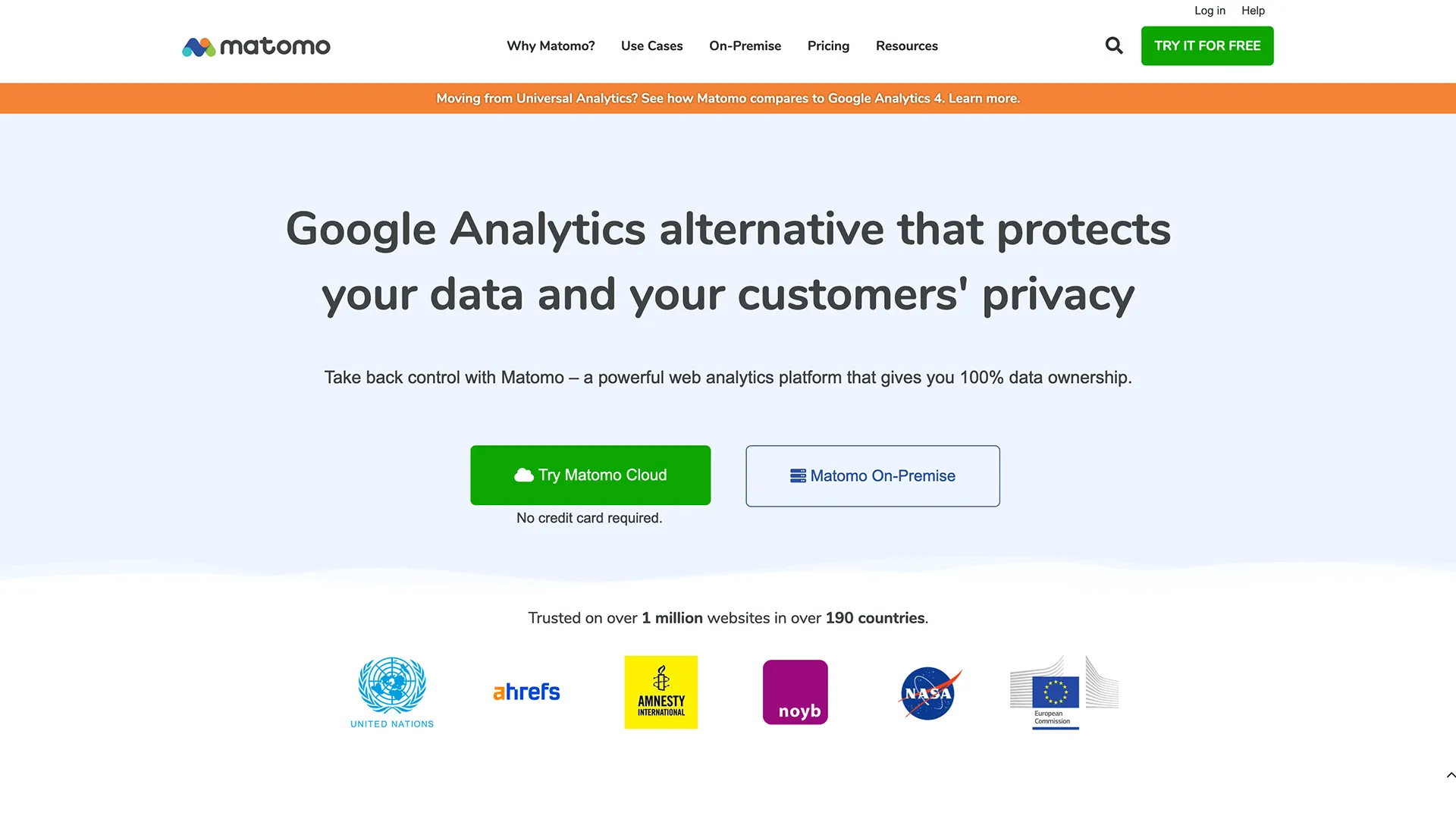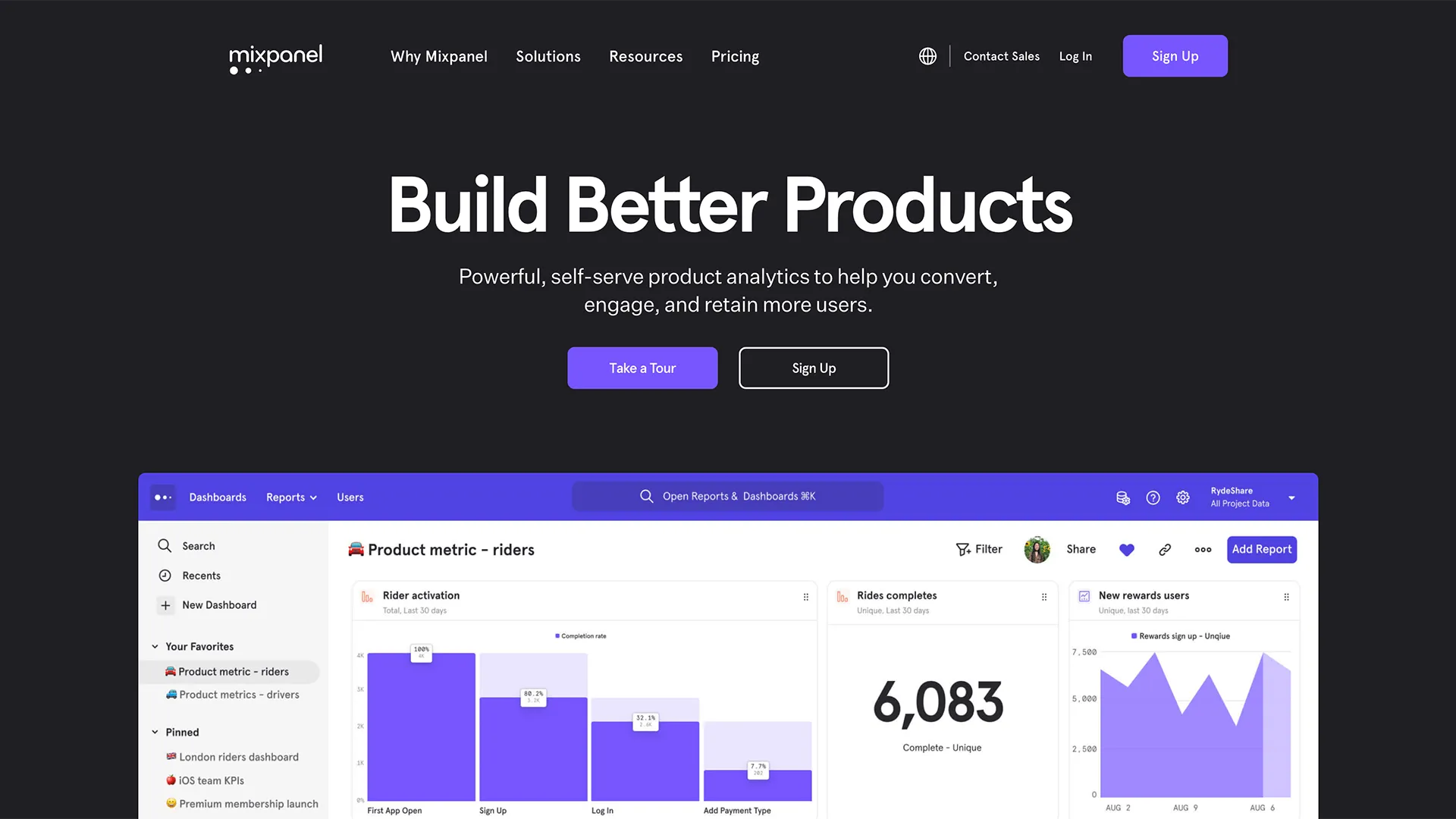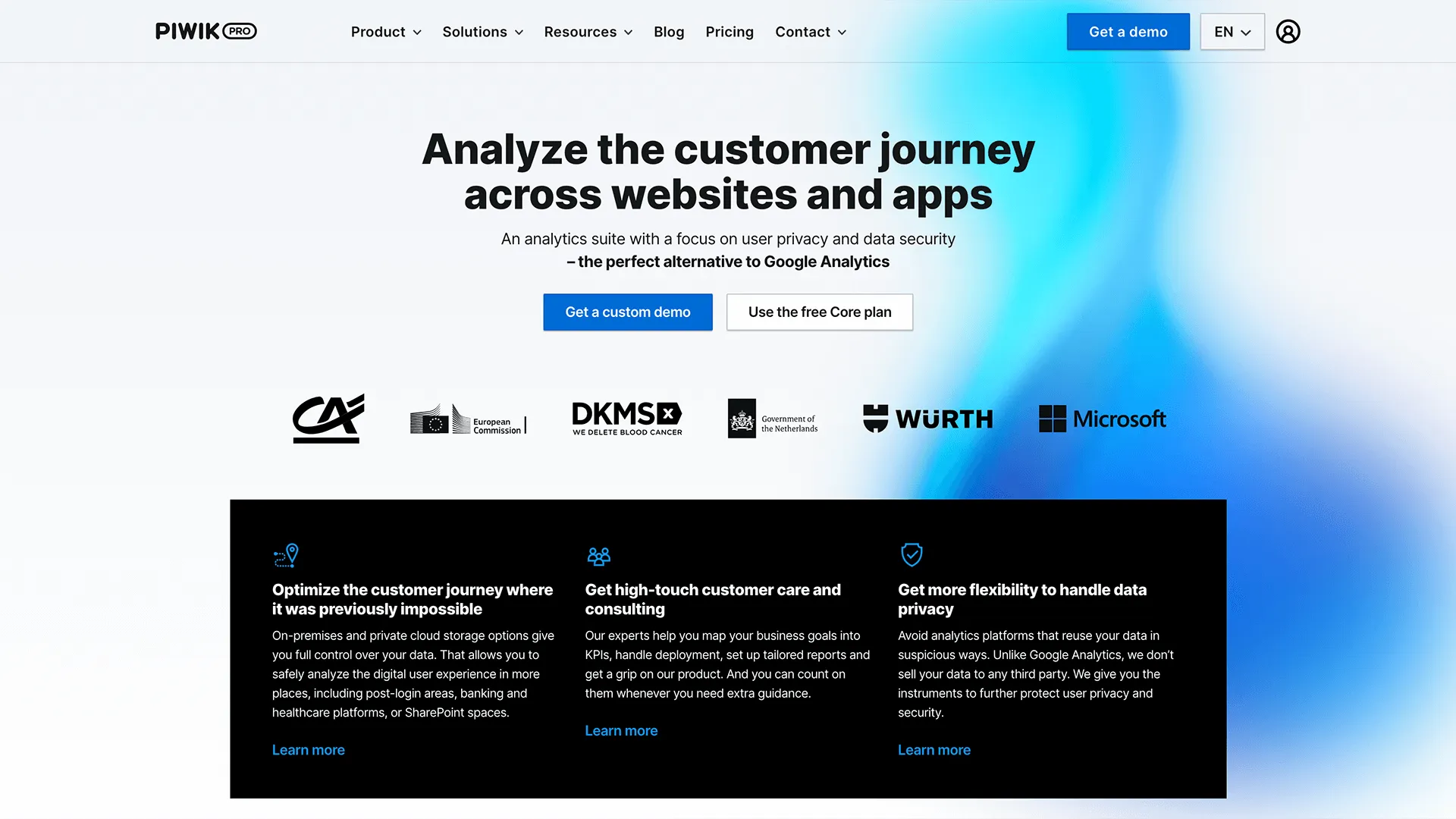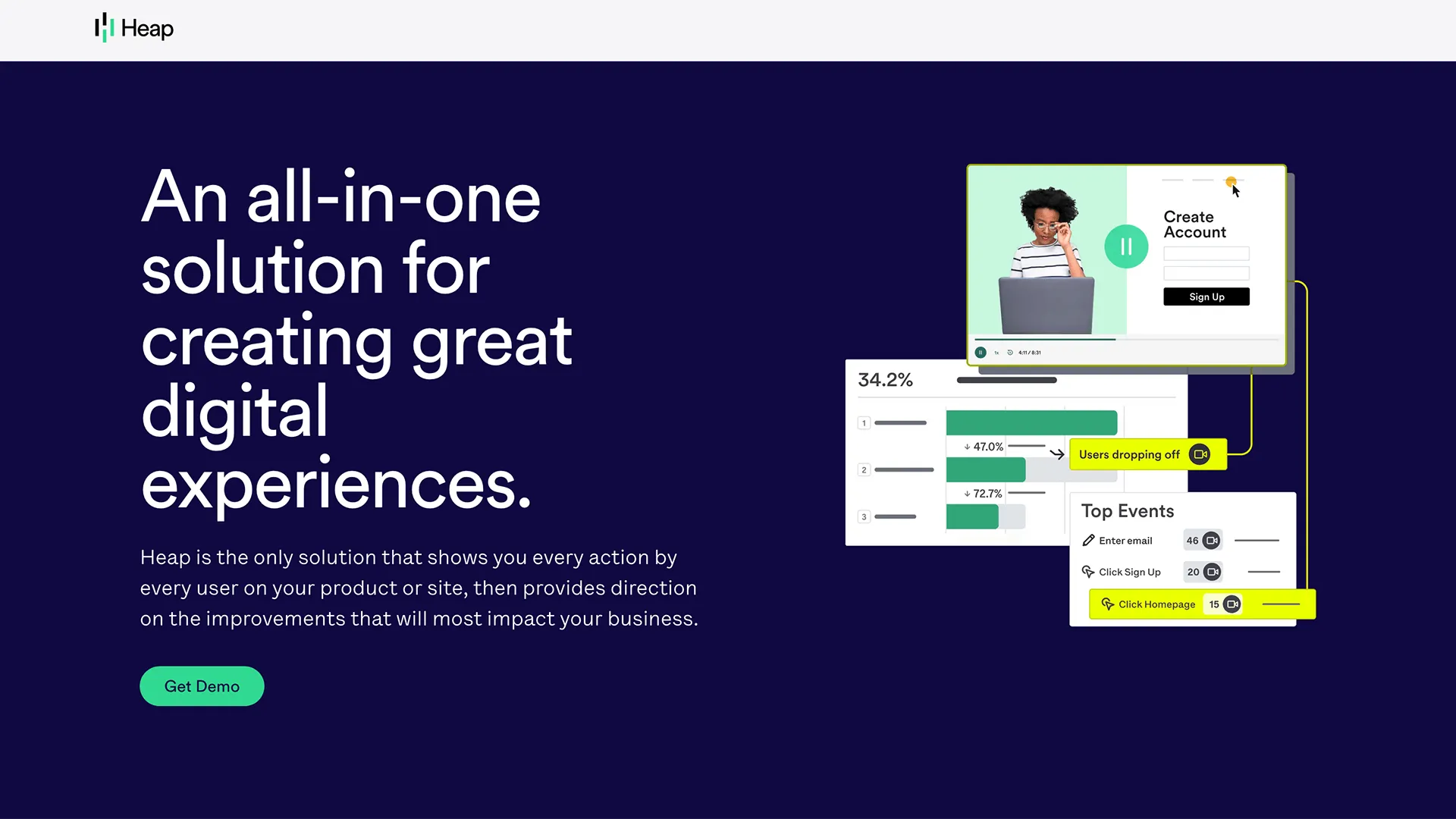5 Reasons to Look For Google Analytics Alternatives
analytics, google analytics, iovox insights,
For the longest time, businesses have relied heavily on Google Analytics to monitor website visitors and user behavior.
But its uncontested reign is suffering some turbulence.
Many quality alternatives to Google Analytics (GA) offer like-for-like analytics and added features.
Additionally, many EU countries like Denmark, Italy, France, Austria, and the Netherlands are banning Google Analytics!
In this article, we’ll reveal why companies are shifting away from Google Analytics and highlight some quality GA alternatives for you to try.
This Article Contains:
(Click on a link to jump to a specific section)
Why Companies are Shifting Out of Google Analytics
Here are the 5 main reasons companies are ditching Google Analytics.
Questionable GDPR Compliance
Court rulings in several European Union countries have declared the use of Google Analytics illegal in the EU.
Why?
Because Google is sharing EU citizen data with the US, violating General Data Protection Regulation (GDPR) rules. These rulings apply to France, Italy, Denmark, Netherlands, and Austria so far.
However, you can likely expect more countries to take the same path.
So, until Google makes changes that are acceptable in EU countries with GDPR, companies running in Europe might have to look for alternatives to avoid legal troubles.
Note: There may still be some hope as leaders in the US and EU have reached an agreement to legally share data across the Atlantic. This may resolve the GDPR issue, but chances are the agreement will be further challenged in court.
What about Google Analytics 4?
Google Analytics 4 has put in efforts to improve data privacy as the data is being processed from end devices within the EU on servers in the EU. They’re also processing IP addresses for geo-location without GA’s storage.
Does that mean the issue is solved?
Despite these efforts, EU countries still consider GA 4’s use illegal.
Google is Retiring Universal Analytics
Google is bidding farewell to Universal Analytics from 1 July 2023.
You’ll still, however, have the option to migrate your GA properties to Google Analytics 4 (GA4).
But here’s the catch:
You can’t move your old data.
Nor can you compare or look back at analytics from 2 years ago. This is going to lead to massive data gaps when it comes to trying to analyze historical website performance.
Not Intended for B2B
If you’re a B2B company, GA isn’t ideal for you.
You can measure how many people visited your website, engaged with your content, etc.
But you can’t measure how many companies did the same.
Why?
For a B2B website, many of those visits can be of the same account, skewing your data. However, as it only tracks visitors as people, each new visit will be considered unique.
Without firmographic analysis, Google Analytics increases the problem of single-user identity, making it nearly impossible for you to make any data-driven decisions.
Not Designed for Long Customer Journeys
Google Analytics works for short customer journeys as data tracking is capped to a maximum of 90 days.
But in the case of a B2B company, customer journeys can go on for months and sometimes even years. This forces B2B companies to find an alternative that lets them track things for far longer.
GA4 is New and Difficult to Use
One complaint many GA4 users have is that the interface is difficult to use, making basic features difficult to access. You can’t even integrate it with third-party applications beyond a handful of tools like Google Ad Manager, Play, Salesforce Marketing Cloud reporting, etc.
Many marketers observed that GA4 seems more suited for enterprise-level users than smaller businesses.
But most importantly, GA4 is an inherently different tool.
This means that new users will require extensive training to use GA4. You may even need to rethink and rebuild your reports.
So, where does this leave you?
With the impending doom of GDPR non-compliance rulings, here’s what you can do to move away from Google Analytics:
- Find ways to start storing your own raw data from every go-to-market team
- Identify every tool and software your different departments use. Then ask them how they deal with GDPR and the storage of data
- Implement tracking software for any activity or touchpoint you don’t actively measure
- Conduct your own analytics on your data
- Look for Google Analytics alternatives
Speaking of alternatives, let’s check out some options.
4 Powerful Google Analytics Alternatives
Here are three things to consider when looking for an alternative:
- Find a web analytics provider that satisfies your needs. For example, mobile analytics or B2B analytics.
- Ensure the migration is as quick and easy as possible. Think about the call recordings, transcriptions, and what metrics are being reported.
- Finally, confirm that the provider is GDPR compliant!
With that said, let’s check out some GDPR-compliant Google Analytics Alternatives:
Matomo Analytics
If you’re looking for features that compare and exceed Google Analytics, Matomo is your answer.
It offers web analytics, multi-attribution, heat maps, and SEO performance. All these powerful features will help you optimize your data-driven marketing efforts.
You can also choose on-premise or cloud-hosted options for complete data ownership.
Moreover, it lets you import your Google Analytics data if you’ve tried and failed to embrace Google Analytics 4.
Mixpanel
Mixpanel is another good product analytics tool that lets you capture data on how users interact with your digital product.
It lets you analyze your product data with simple, interactive reports as well as visualize the same data effectively and quickly. This helps you see how well your marketing efforts are doing.
Lastly, it directly integrates with numerous third-party applications, unlike GA4, which integrates directly with only a handful of applications.
Piwik Pro
Piwik PRO Analytics Suite (PPAS) is all about advanced privacy. It’s great for companies in finance, government, healthcare, etc., that need to handle customer information with utmost care.
Companies can use PPAS to monitor user behavior across desktop, mobile, apps, and intranet.
The analytics tool also gives you full control over your data and how you choose to store it. It can be on-premise, or in a public or private cloud.
Note: Google Analytics 4 allows you only 2 or 14 months of data retention, whereas Piwik PRO offers you anything between 14 and 25 months or even more with Piwik PRO Enterprise.
Heap
Heap leaves no leaf unturned in measuring every interaction on your platform — down to each click and swipe.
It lets you analyze behavior, segment data, and uncover trends and valuable insights. It even has report alerts on developing micro-trends.
And unlike GA4, which needs you to create a Google Analytics Tag and a Trigger to capture something as simple as form submissions, Heap does it automatically.
But here’s the best part:
Engineers and product developers regularly employ APIs to configure sophisticated call rules, track email communications and report open rates, etc.
With iovox Insights, you can analyze communications and phone calls further via iovox’s API solutions, including voice, live chat, SMS, email, and call data.
Every analytics tool we mentioned here can be integrated into call tracking and conversational AI solutions like iovox Insights.
And that’s not all!
With iovox Insights, you can:
- Transcribe and record calls
- Spot keywords and phrases in a call important to your business
- Make phone conversations searchable
- Spot trends and predict outcomes
- View insights like total calls, average talk time, whispers played to receiver, call outcomes, etc.
Final Thoughts
Like it or not, Google Analytics is forcing companies to decide whether to embrace GA4 or switch to a new platform altogether.
Even if you choose to stick around with GA and move to GA4, the GDPR compliance issue remains. And that’s probably why you, too, should consider an alternative to continue analytics without disruption.
Once you have the best-suited platform, integrate it with a powerful call tracking and conversational AI solution to make data-informed decisions like never before.
Fortunately, we have just the solution for you: iovox Insights.
Start using iovox Insights today to access the easiest, most powerful call tracking and speech analytics solution that will grow your business and boost your revenue with every customer interaction!
To connect, simply click the call button below, and we’ll be in touch with you shortly.
You can also email us at hello@iovox.com or give us a call toll-free from within the US at +1 888 369 9519.
From outside the US please reach us at one of these numbers:
London, UK +44 (0)20 7099 1070
Sydney, Australia +61 (0)2 8520 3530
Paris, France +33 (0)1 84 88 46 40



